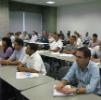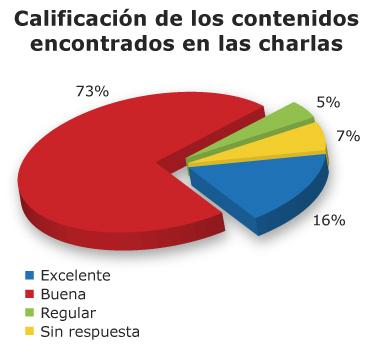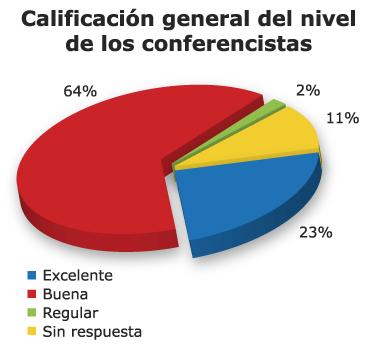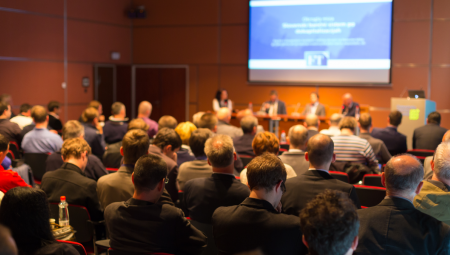 Colombia. Among the most talked about topics in the eighth version of the congress for industrial and commercial refrigeration, RefriAméricas 2011, which was held in Medellín, was training and energy consumption. Two aspects that undoubtedly generated a pleasant debate between attendees and speakers at the forum on the cold sector in the region.
One of the experts present at the panel was the Peruvian engineer William Morales, from Servicios Reter ERL, who spoke with ACR LATINOAMÉRICA and delved into both the issue of constant updating of professionals and the use of outdated refrigeration systems that consume high amounts of energy.
In the first aspect, the engineer Morales emphasizes that in the industry it must correct its failures from the process of professionalizing students. "There are some flaws that need to be corrected. The teachers of these areas must be theoretical and practical, if they have time to do this work and at the same time have a good academic training, the quality of the professionals will be improved; it is also important that teachers are commercially good, but they must also love refrigeration, which would allow Latin America to excel in this area."
Morales recognizes that the actors in this industry sometimes do not show interest in continuing to learn: "The failures that professionals comment on is that we stagnate, we reach a level of knowledge and we do not want to continue because that represents effort, but we have to update ourselves because the machinery changes every year and if you do not train you will be limited to a single technology."
On the subject of energy consumption, William highlights the consumer's interest in purchasing efficient products, but is still concerned about the existing trade in energy-intensive equipment in the region.
"I think there is a sign that you want to improve, it is somewhat slow, but there is a desire of customers in the industry who demand quality standards in the manufacturing process, because otherwise they do not buy the product, but many products have been manufactured in Asia because their standards are minimal and they bring them to Latin America at low prices. That should be controlled by governments so that overnight we do not run out of electricity," the expert concluded.
On the other hand, RefriAméricas 2011 reported a high degree of satisfaction on the part of the attendees of the congress. Result left by the tabulation of the evaluation surveys.
Colombia. Among the most talked about topics in the eighth version of the congress for industrial and commercial refrigeration, RefriAméricas 2011, which was held in Medellín, was training and energy consumption. Two aspects that undoubtedly generated a pleasant debate between attendees and speakers at the forum on the cold sector in the region.
One of the experts present at the panel was the Peruvian engineer William Morales, from Servicios Reter ERL, who spoke with ACR LATINOAMÉRICA and delved into both the issue of constant updating of professionals and the use of outdated refrigeration systems that consume high amounts of energy.
In the first aspect, the engineer Morales emphasizes that in the industry it must correct its failures from the process of professionalizing students. "There are some flaws that need to be corrected. The teachers of these areas must be theoretical and practical, if they have time to do this work and at the same time have a good academic training, the quality of the professionals will be improved; it is also important that teachers are commercially good, but they must also love refrigeration, which would allow Latin America to excel in this area."
Morales recognizes that the actors in this industry sometimes do not show interest in continuing to learn: "The failures that professionals comment on is that we stagnate, we reach a level of knowledge and we do not want to continue because that represents effort, but we have to update ourselves because the machinery changes every year and if you do not train you will be limited to a single technology."
On the subject of energy consumption, William highlights the consumer's interest in purchasing efficient products, but is still concerned about the existing trade in energy-intensive equipment in the region.
"I think there is a sign that you want to improve, it is somewhat slow, but there is a desire of customers in the industry who demand quality standards in the manufacturing process, because otherwise they do not buy the product, but many products have been manufactured in Asia because their standards are minimal and they bring them to Latin America at low prices. That should be controlled by governments so that overnight we do not run out of electricity," the expert concluded.
On the other hand, RefriAméricas 2011 reported a high degree of satisfaction on the part of the attendees of the congress. Result left by the tabulation of the evaluation surveys.
Survey table:















